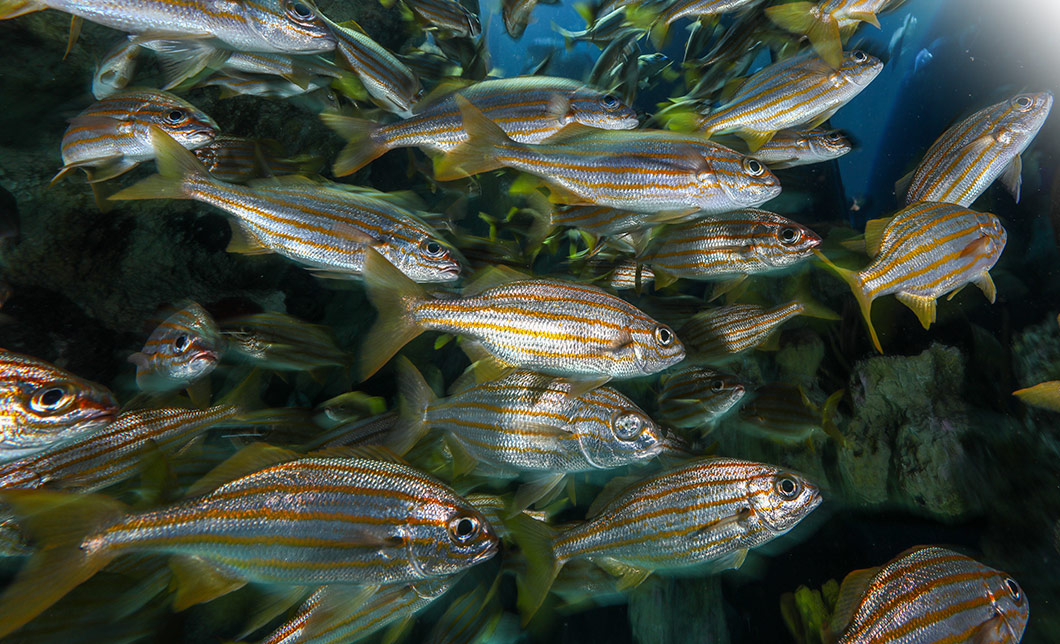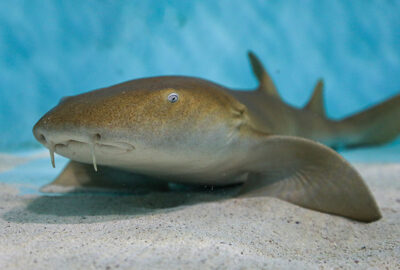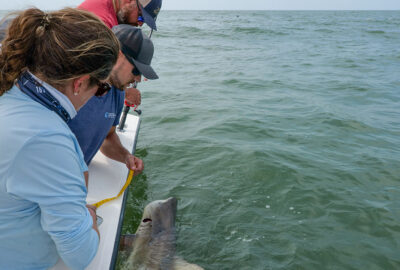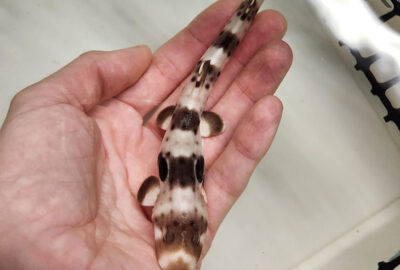The New Balance Foundation Marine Mammal Center will be closed for exhibit maintenance on Tuesday, May 7.
Shark Research is a Team Sport at the Aquarium
By New England Aquarium on Friday, January 29, 2021

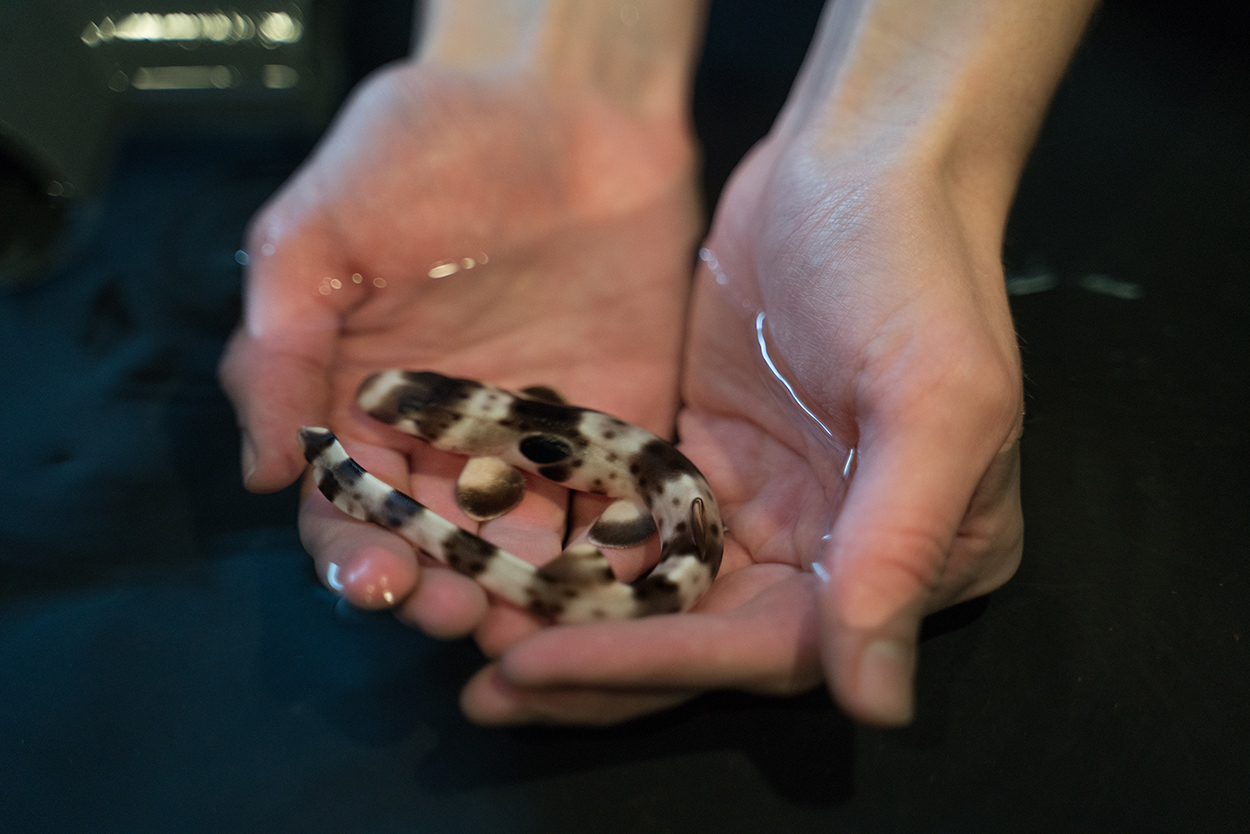
By Emily Greenhalgh
Epaulette sharks are the elite athletes of the Indo-Pacific region. These small but mighty elasmobranchs can walk on the ocean floor with their back fins, survive in environments free of oxygen, and thrive in extreme tidal flat environments. They are also some of the most popular animals in the Aquarium’s Trust Family Foundation Shark and Ray Touch Tank.
In the wild, epaulettes live in Australia’s Great Barrier Reef, a vast ecosystem threatened by coral bleaching from rising ocean temperatures. Because epaulette sharks are especially adaptable to their environment, researchers at the Aquarium’s Anderson Cabot Center for Ocean Life chose to use the species as a model organism to study the effects of climate change. After all, if an Olympic athlete is responding poorly to a changing environment, how is your average human going to respond?
“They’re known as a very resilient species and one that has this fascinating physiology,” said Dr. John Mandelman, vice president and chief scientist at the Anderson Cabot Center for Ocean Life at the New England Aquarium.
Epaulettes are also oviparous, meaning they lay egg cases where the embryos develop and hatch outside the mother shark’s body. The Aquarium has had a successful epaulette shark breeding program for years and the egg cases have appeared on exhibit in the Aquarium, “but we’d never used the egg cases for a research study before,” said Mandelman.
Enter Caroline Wheeler, a Ph.D. candidate at the University of Massachusetts Boston and at the ARC Centre of Excellence for Coral Reef Studies at James Cook University. At the Anderson Cabot Center, she studies sharks under Mandelman’s guidance. Using egg cases from the Aquarium’s healthy breeding population of epaulette sharks, Wheeler set up an experiment to examine how increasing temperature impacts how embryos grow and develop within their egg cases, and enlisted the help of the New England Aquarium husbandry team.
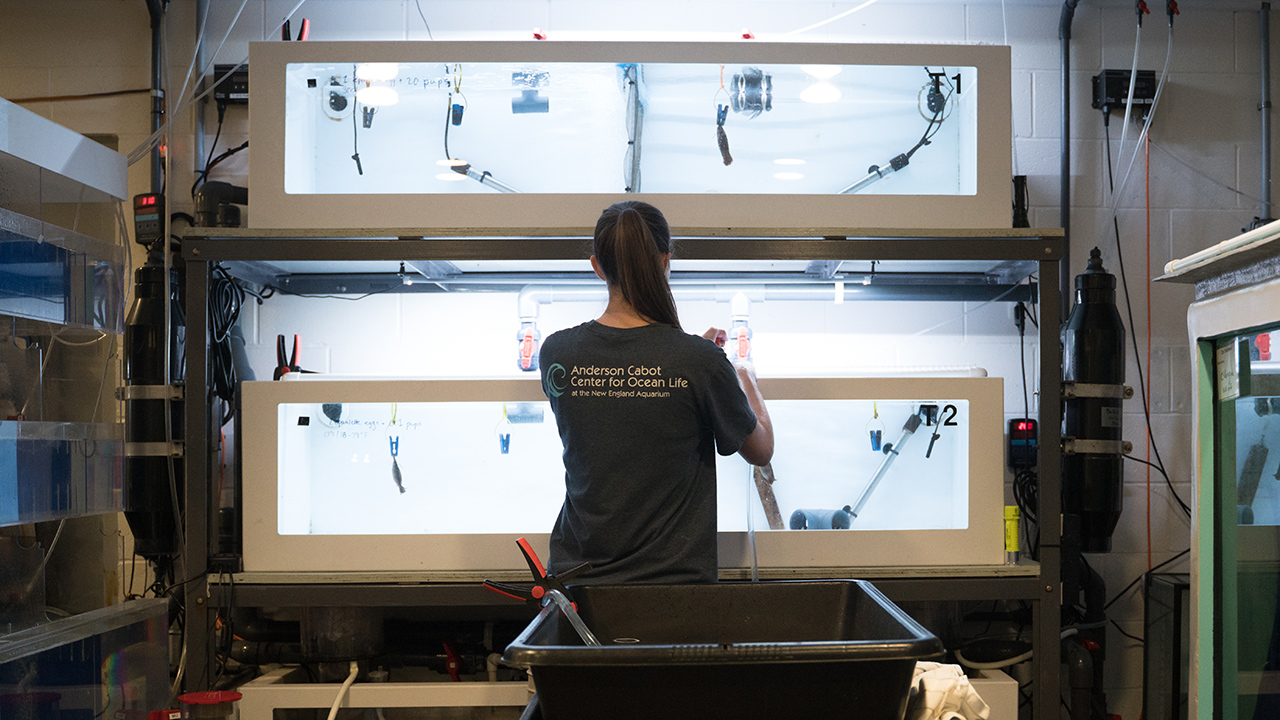
The egg cases laid on exhibit were retrieved by the animal care teams working in the Aquarium and transferred to the Aquarium’s Animal Care facility in Quincy, MA, which is led by Barbara Bailey, curator of husbandry and sustainability.
Bailey’s team set up a tank system with different temperature gradients, and a group of aquarists, interns, and volunteers assisted Wheeler with everything from cleaning and maintaining tank water quality to “candling” the eggs—a process where you shine a light behind the egg cases and record tail beats and respirations of the developing shark embryo.
“This was really the first collaborative study of this kind [for the Aquarium], and for the scientific community, it’s an important one.”
The study, published in the journal Scientific Reports in January, found that as their ocean environment warms, the baby epaulette sharks were born smaller, exhausted, and undernourished.
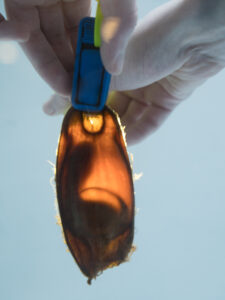
“We found that the hotter the conditions, the faster everything happened, which could be a problem for the sharks,” said Wheeler. “The embryos grew faster and used their yolk sac quicker, which is their only source of food as they develop in the egg case. This led to them hatching earlier than usual.” Wheeler said the hatchlings were not only smaller but they needed to feed almost immediately because they lacked significant energy.
In short, the study found that the warmer temperatures made it harder for the epaulettes to thrive in their environment—an environment getting increasingly hostile due to human-caused climate change.
The New England Aquarium is in a unique position to perform these types of studies. Aquarium staff are experts at keeping animals healthy and thriving in their exhibits on Central Wharf and the researchers at the Anderson Cabot Center for Ocean Life are masters at studying these organisms in a scientific way.
“There is a strong connection between our exhibits and the conservation work that’s going on at the Aquarium. Our skill set is in husbandry—taking care of the animals—whereas Anderson Cabot’s is in designing studies and conducting the research,” said Bailey. “When those two pieces come together, it makes the work stronger.”
“When you wed the two of those things, you can produce really interesting, rigorous, high-impact results,” said Mandelman, calling this study “a real team effort.”
This research was funded by the New England Aquarium with support from individual donors’ restricted funds to Anderson Cabot Center for Ocean Life.

